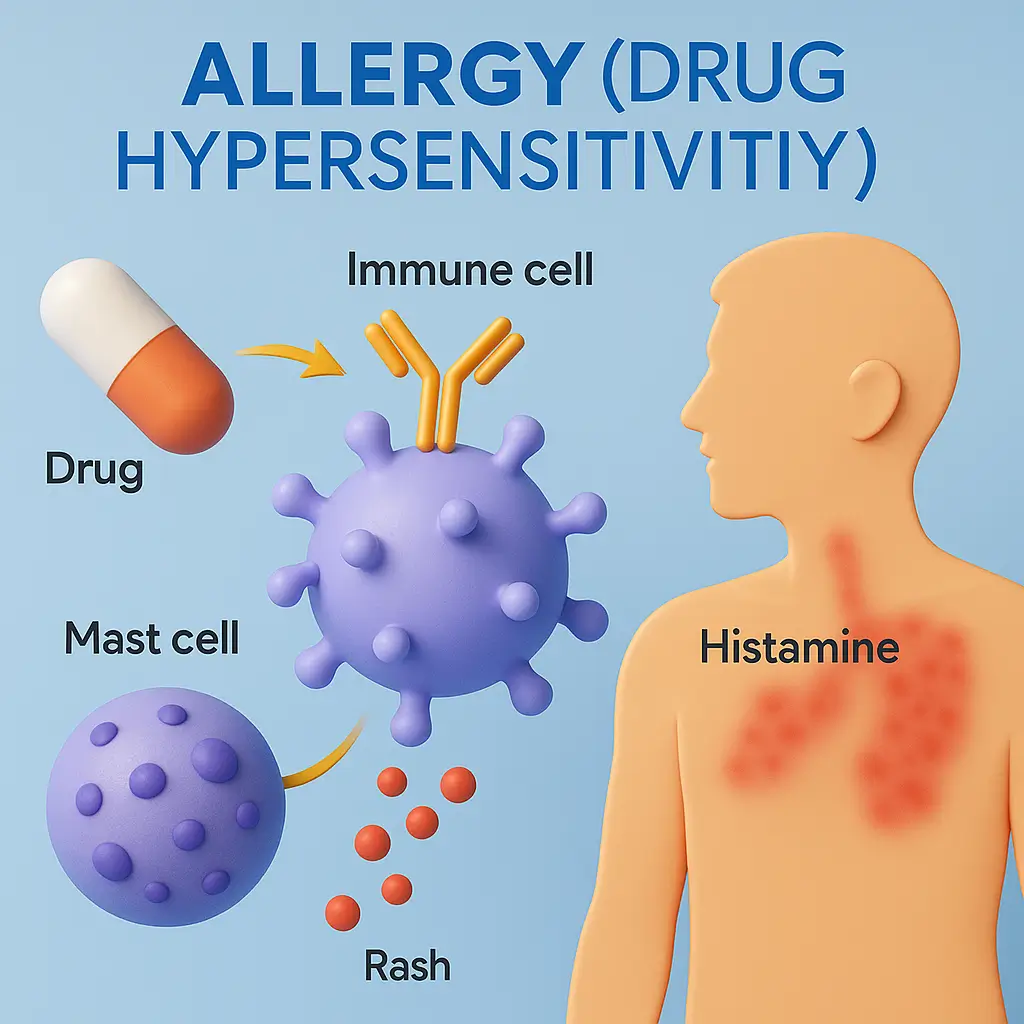Allergy (Drug Hypersensitivity) is an abnormal immune reaction to a drug, causing effects like rash, swelling, or anaphylaxis.
Definition of Drug Hypersensitivity:
- A drug allergy is an immune system-mediated adverse drug reaction.
- It can occur at low doses, is unpredictable, and is not related to the pharmacologic action of the drug.
Types of Hypersensitivity Reactions (Gell and Coombs classification):
-
Type I (Immediate, IgE-mediated):
- Rapid onset (within minutes).
- Examples: Anaphylaxis, urticaria.
- Drugs: Penicillin, vaccines.
-
Type II (Cytotoxic, IgG/IgM-mediated):
- Affects blood cells.
- Example: Hemolytic anemia.
-
Type III (Immune complex-mediated):
- Causes vasculitis, serum sickness.
- Occurs after 1-3 weeks.
-
Type IV (Delayed, T-cell mediated):
- Occurs after 48–72 hours.
- Example: Contact dermatitis from topical drugs.
Management:
- Avoidance of the offending drug.
- Antihistamines, corticosteroids, or epinephrine (in case of anaphylaxis).

